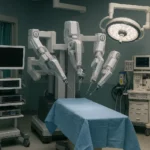CRISPR Treatment for Genetic Disorders in India
In recent times, CRISPR-Cas9, which is exceedingly important for gene-editing, is a new and interesting technology that has gripped the imagination of scientists and laypeople alike. Moreover, with a heavy impact on the approach to curing inherited diseases, CRISPR treatment allows the most clinical and highest precision modifications of DNA.
In contrast, to therapeutic methods historically aimed at alleviating symptoms, CRISPR raises hopes through direct interventions into the root cause, giving a chance of getting rid of genetic disorders alternatingly. With that said, with great potential for intervening at the level of the very genes that are misdirected and changing the DNA structure at the molecular level, CRISPR-Cas9 has a truly promising future for getting cures for diseases that were termed untreatable. Therefore, this blog post will discuss how CRISPR works, advances in its application for treating genetic disorders, and what the future of medicine would entail.
What Is CRISPR-Cas9 and How Does It Work?
CRISPR-Cas9 is a technology for gene editing that enables the exact cutting of genes within the DNA of living organisms by researchers. This works by using guide RNA to find a specific sequence of the genome.
Once the gene of interest is identified, Cas9 acts as molecular scissors by cutting the DNA at that specific site, allowing scientists to delete the malfunctioning gene or replace it with a healthy version. Such modifications at the level of DNA are extremely precise and rather simple, resulting in CRISPR being such a powerful tool within the gene therapy scope.
The Mechanism of CRISPR: Cutting-Edge Technology
- Targeting Specific Genes: CRISPR uses a short RNA sequence that binds to a specific part of the DNA, guiding the Cas9 enzyme to the correct location.
- Cutting the DNA: Once at the target site, the Cas9 enzyme makes a cut in the DNA strand, allowing for modifications such as inserting a new gene or knocking out a defective one.
- Repairing the Gene: After the cut is made, the cell attempts to repair the break. Scientists can harness this natural repair process to introduce the correct genetic material.
This precise mechanism allows scientists to target and edit genetic disorders at their source, offering a potential cure rather than just symptom management.
CRISPR and Inherited Diseases: A Game Changer
Inherited diseases are genetic mutations that are inherited; that is, they are passed down from parents to children. A single mutation can cause conditions such as sickle cell anemia, cystic fibrosis and muscular dystrophy. CRISPR gene editing offers the possibility of addressing these diseases by correcting the genes responsible for them.
For instance, a mutation in the hemoglobin gene causes red blood cells to become deformed and crescent-shaped in sickle cell anemia. Scientists aim to correct this mutation using CRISPR, which could potentially cure the disease.
Moreover, early tests have already shown success in gene modification for patients with beta-thalassemia and sickle cell anemia. These promising results offer strong hope for eliminating such inherited diseases.
The Role of Stem Cell Therapy in CRISPR Treatment
Stem cell therapy combined with CRISPR gene editing opens up avenues for better treatment of genetic disorders. Stem cells can change into any type of cell within the body, making it an excellent resource for regenerative medicine. Furthermore, physicians now combine stem cell therapy with CRISPR to replace defective genes in stem cells. They then reinject these modified cells into patients, allowing them to repair damaged tissues and organs.
Moreover, this particular synergy offers hope for treating muscular dystrophy. Scientists can combine CRISPR with stem cells to program them to produce healthy muscle tissue. They then implant these engineered stem cells into the patient’s body, regenerating muscle tissue and offering lifelong solutions to conditions once thought irreversible.
CRISPR and Genetic Counseling: A New Era of Preventative Medicine
The use of CRISPR for gene-editing creates a new chapter in the field of genetic counseling. Traditionally, genetic counseling has served to help families understand the risk factors of passing on various inherited diseases. Now, the introduction of CRISPR allows genetic counseling to incorporate gene therapy into its arsenal. In this way, families planning through such disorders may now start taking gene editing as a preventive measure. As a result, genetic counseling has now also come into a more personalized and thorough form of service.
This breakthrough could open the door to preventing certain genetic diseases even before birth. As a result, entire classes of inherited disorders might be eliminated from future generations.
Moreover, as genetic counseling and CRISPR take on this role, families will face important decisions. They will be empowered to take proactive steps to protect their health and prevent inherited conditions.
The Future of CRISPR: What’s Next?
A bright future awaits gene editing technologies like CRISPR. Scientists are actively improving its accuracy to reduce the risk of unintended genetic changes.
Moreover, they continue refining CRISPR techniques over time. These advancements are gradually translating into real medical applications. As a result, medicine is moving closer to curing diseases once considered untreatable.
Moreover, progress in gene therapy is gaining significant momentum in treating complex genetic diseases. Soon, hospitals may offer CRISPR-based procedures directly, making them widely accessible. Who knows, continued research coupled with clinical trials will make this a perfect reality. The world without hereditary genetic disorders, with CRISPR providing a permanent solution to diseases that have haunted people for generations.
Why Choose Regimen Healthcare for CRISPR Treatments?
- Expert Medical Professionals: At Regimen Healthcare, we work with a network of leading doctors and specialists in gene therapy and CRISPR gene editing. Our partners include world-renowned hospitals in India, offering the latest advancements in genetic medicine.
- Personalized Care: We understand that every patient is unique, which is why we provide personalized care tailored to your needs. Our team offers comprehensive support throughout your treatment journey, from genetic counseling to post-treatment care.
- Affordable and High-Quality Healthcare: India is a global leader in medical tourism, offering cutting-edge treatments at affordable prices. With Regimen Healthcare, you can access CRISPR-based gene therapy at world-class facilities without the high costs typically associated with such advanced treatments.
- Comprehensive Support: We manage all aspects of your treatment, from arranging consultations with top genetic specialists to assisting with your travel and accommodation, ensuring a seamless experience for you and your family.
Why India for CRISPR Treatment?
India has become a global leader in the field of gene therapy and CRISPR gene editing. The country boasts a strong medical infrastructure, with hospitals that are equipped with the latest technology and staffed by highly trained professionals. The cost of healthcare in India is significantly lower than in many developed countries, making it an ideal destination for medical tourists seeking advanced treatments such as CRISPR-based therapies.
Regimen Healthcare partners with the best hospitals in India to provide you with top-tier care. Whether you are seeking genetic counseling, gene therapy, or stem cell treatments, India offers affordable and world-class medical services.
Conclusion: A New Era in Medicine
CRISPR already serves as a powerful tool for correcting genetic disorders. Its potential to permanently eliminate inherited diseases makes it a true game-changer. As a result, it brings new hope to countless families around the world.
Moreover, as gene therapy advances, scientists aim not just to treat but to cure diseases at their genetic root using CRISPR. With CRISPR-Cas9 at the forefront, the medical world is stepping into a new era. This is an era where genetic disorders may no longer be lifelong burdens but curable conditions of the past.
Soon, scientists will shape a bright future for gene editing through ongoing research and collaboration. As a result, they can work toward completely eliminating hereditary genetic disorders for good.
If you or a loved one is suffering from a genetic disorder, it’s time to explore the possibilities that CRISPR gene editing offers. At Regimen Healthcare, we connect you with the top medical professionals in India to provide cutting-edge gene therapy and stem cell treatments. Contact us today to learn more about how CRISPR can change your life and help eliminate inherited diseases forever.
📩 WhatsApp or Call: +91-9310356465
🌐 Visit: www.regimenhealthcare.com
📍 Begin your treatment journey with confidence – Regimen is with you every step of the way.
Frequently Asked Questions (FAQs)
1. What is CRISPR-Cas9?
CRISPR-Cas9 is a gene editing technology that allows for precise alterations to DNA to treat genetic diseases.
2. How does CRISPR work?
CRISPR uses guide RNA to locate specific genes in the DNA, and the Cas9 protein cuts the DNA, enabling modifications.
3. Can CRISPR cure inherited diseases?
Yes, CRISPR has shown promise in treating diseases like sickle cell anemia, cystic fibrosis, and muscular dystrophy.
4. What is gene therapy?
Gene therapy involves altering genes to treat or prevent disease, and CRISPR is one of the most advanced forms of gene therapy.
5. How is CRISPR used in genetic counseling?
Moreover, CRISPR allows genetic counselors to offer personalized advice on preventing or treating hereditary diseases through gene editing.
6. What are stem cells, and how do they work with CRISPR?
Stem cells can become any type of cell in the body. Furthermore, combined with CRISPR, stem cells can be genetically edited to replace damaged tissues.
7. Why should I choose India for CRISPR treatment?
India offers affordable healthcare with high-quality medical facilities, making it an ideal destination for CRISPR gene therapy.
8. Is CRISPR treatment safe for humans?
While CRISPR is promising, research is still ongoing to ensure its long-term safety and minimize any potential risks.
9. Can CRISPR treatment be used for complex genetic diseases?
Yes, CRISPR is being tested for a wide range of genetic diseases, including some that were previously considered untreatable.
10. How can Regimen Healthcare help me with CRISPR treatment?
Regimen Healthcare coordinates all aspects of your CRISPR treatment, ensuring you receive the best care and support throughout your journey.






